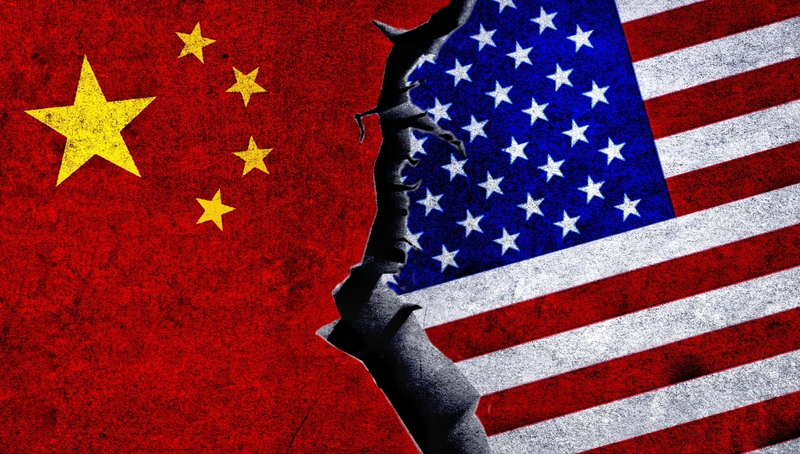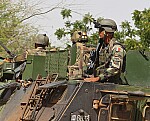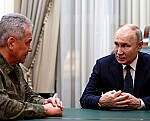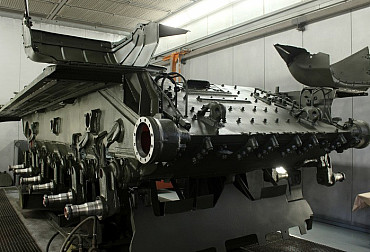US and Chinese defense ministers at the Shangri-La Dialogue
Recently, another Shangri-La Dialogue took place in Indonesia. Both the PRC and US defense ministers took part and made remarks on how their countries view the current global development with special emphasis on the latest development in the Asia-Pacific region.

Admiral Dong Jun, newly appointed Defense Minister of the People´s Republic of China (PRC), emphasized that for the people in the Asia-Pacific region, independence and freedom are a key and therefore do not seek any vassal status or bloc confrontation. Jun also stressed that Asia-Pacific faced aggression throughout its history. This is why countries in the region will never, according to Jun, allow any actor to bring cold or hot war to the Asia-Pacific.
The PRC defense minister also said that the PRC is a major country responsible and could share best practices (even though he did not mention which ones) of development for the 'bright future'. Moreover, he presented President Xi´s three main initiatives: the Global Development Initiative, the Global Security Initiative, and the Global Civilization Initiative. According to Dong Jun, the PRC is a peaceful country with a defensive policy. He gave examples of PRC nuclear policy which is, in his own words, stable and predictable and is based on the no-first use principle. On the other hand, the PRC defense minister did not mention the growing nuclear arsenal of hundreds of nuclear warheads.
Then, the PRC defense minister moved on to current global events. On the war in Ukraine (which is called 'Ukraine crisis' in his address), he repeated the Chinese position of peace and dialogue and stressed that the PRC does not provide any party to the conflict (which is obviously not true - both Ukraine and Russia use DJI drones). On the Israeli-Palestinian conflict, Jun repeated that the PRC stands in a neutral position. The most interesting and important issue is, of course, Taiwan. There is no change in the position of the PRC in Taiwan. Rather, the PRC uses more aggressive rhetoric, and admiral Jun also said that 'separatist forces' on Taiwan will be crushed together with their external supporters.
On the other hand, US defense minister Lloyd Austin emphasized strong ally relations throughout the region. The Indo-Pacific is a top priority for the United States, and events in this region will shape the future of the entire world.
Regarding cooperation with allies and partners, US defense minister Austin stressed joint development of the Glide Phase Interceptor with Japan. This project aims to develop an interceptor against hypersonic missiles. With India, the US plan to co-produce engines for fighter jets and armored vehicles. The US also continues to work with the Philippines to enhance its defense capabilities in the naval domain. One of the most important partnerships is with Australia and the United Kingdom in the framework of the unprecedent AUKUS program which is aimed at enhancing cooperation mainly in the naval domain by supplying nuclear-powered tomahawk-armed attack submarines to Australia. Austin also stressed joint cooperation between Philippines, Australia, the US, and France during the Balikatan exercise and the new posture of the US forces across the region. For example, according to Austin 's own words, the United States Marine Corps will station its most advanced formation (presumably newly created Marine Littoral Regiment) in Japan and has recently gained access to four new bases in the Philippines under the Enhanced Defense Cooperation Agreement.
From the aforementioned part of each minister s remarks, one can conclude that the Great-Power Competition between the PRC and the US is heating up and both countries are preparing for potential armed conflict. The PRC stays consistent with regard to Taiwan, which is, from the PRC point of view, considered its own territory, and the PRC will never reiterate the possibility of using force against the island. The US is, on the other hand, obviously aware of the potential development and strengthening partnerships across the region regions with allies and partners. The US armed forces also strengthened its presence across the region, in Japan, Australia, and Philippines.










